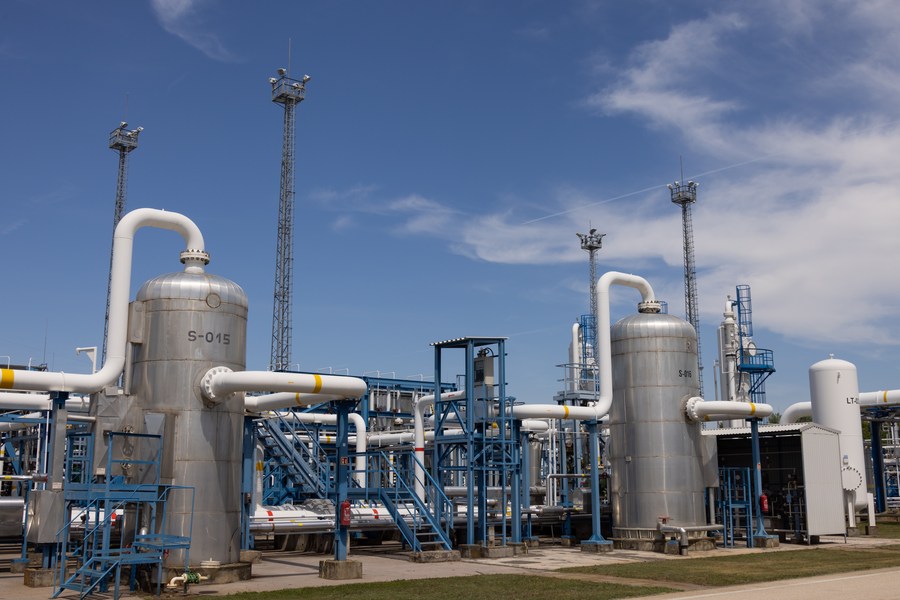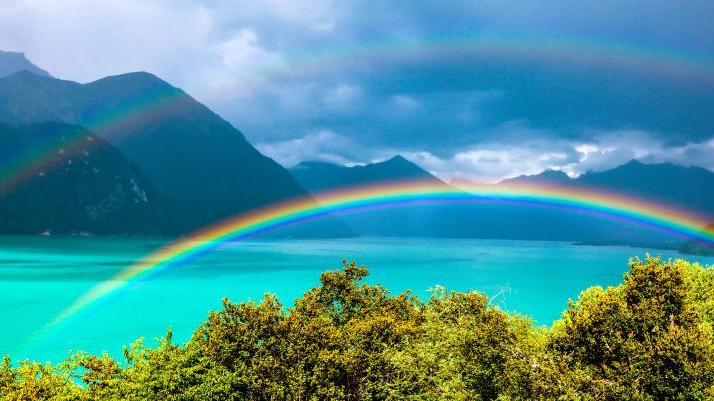Expert calls for cross-border collaboration to tackle EU gas crisis

Photo taken on April 28, 2022 shows the office of Russia's energy giant Gazprom in Moscow, Russia. (Photo by Alexander Zemlianichenko Jr/Xinhua)
The energy crisis in the European Union (EU) took a turn for the worse on Monday after Russia said it would indefinitely halt gas supplies via the Nord Stream I pipeline until sanctions against the country were lifted.
ROME, Sept. 6 (Xinhua) -- If European countries build on their experiences from their recent collaboration in vaccinating their populations against COVID-19 to find a common energy strategy, it will become easier for them to soften the blow from record gas and electricity prices brought about by Russia's decision to cut off gas flows to Europe, an Italian climate and energy analyst has said.
Luca Bergamaschi, co-founder and executive director of Ecco, a climate and energy think tank in Italy, told Xinhua that although the impacts of Russia's move were being felt across the EU, they were not being felt evenly.

A man shows gas consumption on a meter in downtown Budapest, Hungary, on July 13, 2022. (Photo by Attila Volgyi/Xinhua)
The energy crisis in the European Union (EU) took a turn for the worse on Monday after Russia said it would indefinitely halt gas supplies via the Nord Stream I pipeline until sanctions against the country were lifted.
The announcement has sent natural gas prices surging. Stock markets across the 27-nation bloc have been thrown into a tailspin and the euro continued to fall against the U.S. dollar. Currently, European gas prices are more than four times higher than usual for this time of year, and the major indices on the stock exchanges in Frankfurt, Paris and Milan all slid.
In late June, the EU member states agreed that they should seek to fill their gas storages to at least 80 percent of capacity before this winter and to 90 percent by the winter of 2023-2024. While the states are on track to reach their goal, Bergamaschi noted that their storage capacities are not equal.

Photo taken on June 28, 2022 shows the site of the Midia natural gas development project in Vadu village on the Black Sea coast in southeastern Romania. (Photo by Cristian Cristel/Xinhua)
"Some countries like Italy and Germany have more natural gas storage capacity than countries in eastern or northern Europe," he said, noting that France gets a large part of its energy mix from nuclear power.
"The only way to make Europe stronger and to make everyone stronger is to have a common gas policy," he said.
"We're in a similar situation to when COVID-19 hit Europe and countries sharing vaccines and sharing financial capital to help the recovery plan was essential to saving lives and making Europe stronger. We need to see something very similar now if we want to cope (with the energy crisis)," he said.

Photo taken on May 20, 2022 shows a natural gas storage facility operated by Hungarian Gas Storage Ltd. in the village of Zsana, Hungary. (Photo by Attila Volgyi/Xinhua)
In recent days, France has said it would increase its nuclear power output to near capacity as a way to fill in some of the energy gap in Europe, while Ukraine said it had started exporting electricity to the EU. But Bergamaschi said neither of those moves is likely to be large enough to have a major impact on Europe's overall near-term energy shortage.
Bergamaschi is among those who believe the gas shortage should act as an incentive to ramp up the production of energy from renewable sources, such as wind and solar power. But because that will take time, he said it could be necessary to lean heavily on gas imports from producers besides Russia and even more polluting energy sources like coal.
Photos
Related Stories
Copyright © 2022 People's Daily Online. All Rights Reserved.









